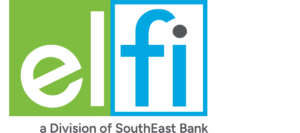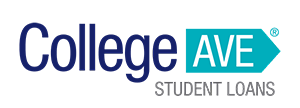Saving for college has become a monumental task for parents. Over the last 30 years, the average cost of tuition and fees increased from $4,160 to $10,740 at public four-year institutions, according to CollegeBoard (and that’s adjusted for inflation).
For parents who can afford to save, 529 plans can offer the chance to set aside some cash for future educational expenses — and take advantage of tax benefits along the way.
That said, 529 plans have some limitations that you’ll want to keep in mind before you get started. Here’s everything you need to know about 529 plans for college.
What is a 529 plan?
There are two types of 529 plans: prepaid tuition plans and college savings plans. Here’s a quick summary of how they work.
529 prepaid tuition plan
This type of 529 plan allows you to prepay future tuition costs for your child, generally with an in-state public college or university. You can buy individual college credits at a certain rate, and regardless of what tuition costs are when your child enters college, they’ll be covered.
Prepaid tuition plans don’t include funds for room and board, supplies or other expenses, though. And if your child opts to leave the state for school or to attend a private institution, you won’t get guaranteed tuition, but you’ll likely get an amount equal to the average tuition and fees at the home state’s public schools.
Unlike 529 college savings plans, you must be a resident of the state offering a prepaid tuition plan to be eligible. Currently, only nine states offer 529 prepaid tuition plans to non-residents, including Florida, Maryland, Massachusetts, Michigan, Mississippi, Nevada, Pennsylvania, Texas and Washington.
529 college savings plan
A 529 college savings plan is essentially a tax-advantaged investment account that allows you to save specifically for educational expenses. Parents and other family members can contribute money and watch it grow tax-free until their child needs the funds.
The account owner can withdraw funds on a tax-free basis, as long as they’re used for qualified education expenses, which can include tuition and fees, room and board, textbooks, supplies and more. Parents can also use 529 plan funds to pay for up to $10,000 in K-12 tuition expenses, and even up to $10,000 in student loan debt after the child has graduated.
If you take a distribution for non-qualified expenses, you may incur a 10% penalty on the withdrawal and you’ll be subject to income taxes on the gains portion of the withdrawal.
529 plans don’t have annual contribution limits, but contributions that exceed $16,000 per parent are considered gifts for tax purposes and may impact their tax situation in the future.
Nearly every state offers a 529 college fund option, but you don’t have to be a resident of a specific state to open an account. However, some states offer tax deductions and credits on contributions, and you have to be a resident of that state to take advantage of that benefit.
If your state doesn’t offer these tax breaks, you can shop around to find the best 529 college savings plan for you.

Get Our Free Comprehensive eBook
Free eBook: How to Conquer Student Loans

What are the benefits of a 529 college fund?
Depending on the type of plan you get, there are many benefits to be had, both for you and your child:
- You’ll get tax benefits: If you were to invest for college expenses in a brokerage account, you’d have to pay taxes on the gains no matter what. However, with a 529 prepaid tuition plan, your guaranteed tuition rate is not taxable, and your money will grow tax-free as long as you use the funds for qualified expenses. What’s more, some states offer additional tax benefits on contributions in the form of a deduction or credit.
- You can shop around for savings plans: While you need to be a resident of the state offering a prepaid tuition plan, you have the option to compare savings plans from multiple states to determine which one offers the best investment options and the lowest fees.
- Prepaid tuition plans lock in tuition costs: Tuition costs have increased at a much faster rate than inflation in the past few decades, and it’s difficult to know what they’ll be like when your child is old enough to attend college. With a prepaid plan, you don’t have to stress about that — simply pay the current rate for credits, and as long as your child attends an in-state public school, they’ll be covered.
- You can change the beneficiary: If your child decides not to attend college, they obtain scholarships or they want to attend in another state and you have a prepaid plan, you can change the beneficiary on your plan to another child.
What are the drawbacks of a 529 savings plan?
While there are some clear advantages to using a 529 plan to save for your child’s education, there are also some disadvantages to consider before you start saving.
- Fees can be high: Depending on the type of plan you choose, the fees can eat into the value you’re gaining by investing in a tax-advantaged education account.
- You may be required to make minimum contributions: With 529 college savings plans, some states require that parents make a minimum contribution every month. If you want more control over when you contribute, you may want to look elsewhere.
- You may incur penalties for non-qualified withdrawals: With a college savings plan, you’ll typically incur a 10% penalty from the IRS, plus income taxes on your gains, if you take out money for non-qualified expenses. There are some exceptions, though. More on those in a bit.
- You may receive less financial aid: When your child fills out the Free Application for Federal Student Aid (FAFSA), they’ll need to include parent-owned 529 plan funds as assets — even if the child isn’t the beneficiary — which can impact how much federal aid they qualify for.
The 4 Best Companies for Private Student Loans
Our Top-Rated Picks for 2023 Offer Low Rates and No Fees
Option to skip a payment once a year

In-school deferment available if you return for another degree

Optional $25 payment plan during school to reduce interest after graduation

1% Cash Back Graduation Reward program
Fixed Rate
Variable Rate

Fixed Rate
Variable Rate
How can funds be spent?
If you have a 529 prepaid tuition plan, the funds go directly toward the cost of tuition. However, 529 college savings plans offer more flexibility. Here are some of the eligible expenses for that type of plan:
- Tuition and fees
- Room and board
- Textbooks
- Supplies
- Equipment
- Computers
- Special needs expenses
- K-12 tuition costs (up to $10,000 per year)
- Student loan payments (up to $10,000)
If you withdraw funds for other purposes, there may be a 10% penalty, and you’ll also need to pay income taxes on the gains portion of the withdrawal.
There are exceptions to the 10% penalty, though, such as when your child receives a scholarship. In this case, you can withdraw up to that amount and only pay taxes on your gains. Other exceptions include if the beneficiary dies or becomes disabled, receives educational assistance through a qualified employer program, is attending a military academy, or is using the funds to claim another educational tax benefit.
If your child doesn’t need all the funds, you can change the beneficiary to a different child. You can also roll over a 529 plan to a different one, including from a prepaid plan to a savings plan, as long as the beneficiary remains the same.
Maximize your savings and other free college funding sources
If you want to help your child pay for college, a 529 plan is one of the best ways to do it. However, if you don’t find the drawbacks appealing, you could instead opt for a brokerage account, a Roth IRA, or a custodial account.
Regardless of which approach you take to saving for college, it’s important to have a strategy and make it a priority in your financial plan. Additionally, you’ll want to encourage your child to explore other funding sources that don’t require repayment. Examples include:
- Scholarships and grants: Fill out the FAFSA to determine eligibility for federal grants and have your child contact their school to find out about scholarship opportunities. They can also use databases like Scholarships.com and Fastweb to apply for private scholarships and grants.
- Work: If it doesn’t conflict with their coursework, encourage your child to work part-time while attending school. They can also work full-time during the summer to prepare for the upcoming school year.
If borrowing money is necessary, encourage your child to apply for federal student loans first. These loans typically don’t require a credit check, and they can offer low interest rates and fees, particularly if your child is an undergraduate student. They also offer long-term benefits, including access to forgiveness programs and income-driven repayment plans.
If your child still has expenses after they’ve exhausted all of their other options, private student loans can help them bridge the gap. In this case, lenders do require a credit check, so you may need to help by cosigning the loan application. Consider letting Purefy help you shop around and compare private student loans to ensure that you get the loan with the best interest rates, repayment terms and other features.
Need a Private Student Loan? Check Out the Top Lenders of 2023.
Compare interest rates and perks to find the best lender for you.
















